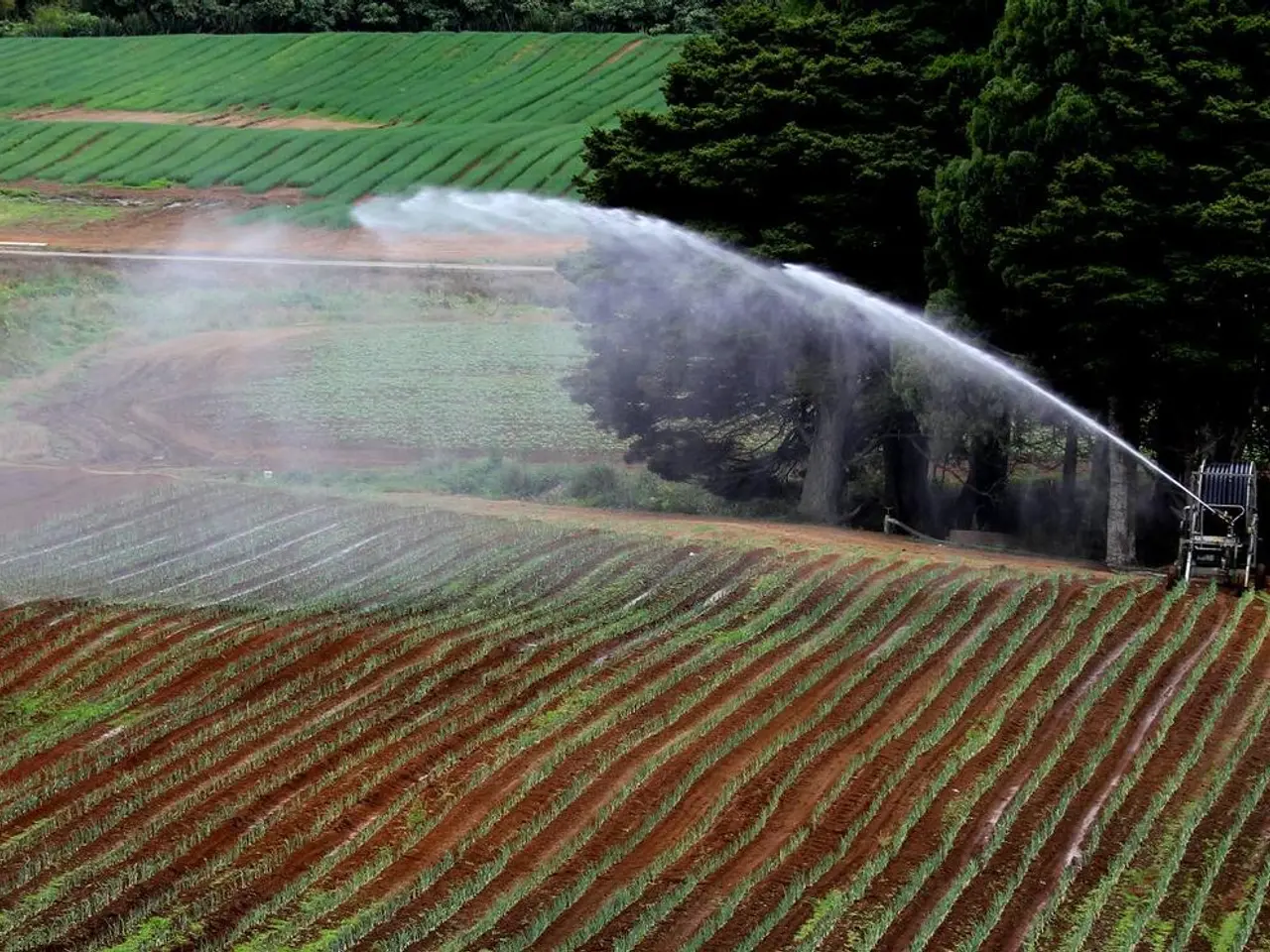Woman in Assam Successfully Establishes Prosperous 32-Acre Farm Including Fishery, Napier Grass Cultivation, and Sericulture Following Job Loss as Teacher
Nandita Kalita's Journey from Layoff to Self-Reliance in Integrated Farming
Nandita Kalita, an Assamese woman, found herself unexpectedly out of work in 2021 when she was laid off from her job as a Middle English school educator and Hindi teacher. Instead of letting this setback discourage her, Nandita chose to venture into agriculture, transforming a 8-bigha land plot acquired from her daughter into a thriving integrated farm.
Located in a remote part of Dhemaji, close to a riverbank, and with minimal road connectivity, Nandita's farm is a vibrant example of integrated farming, combining fishery, horticulture, sericulture, and livestock management. The farm includes Som trees for Muga silkworm rearing, banana plantations, mulberry trees for silk farming, bamboo as natural barriers, and Napier grass for livestock fodder. Nandita raises six goats, chickens, and ducks on her farm, diversifying her income streams and creating a self-sustaining ecosystem.
Nandita's farm also includes a 5-bigha fishery, which she expanded to 32 bighas by acquiring more land from her family members. However, lack of cold storage facilities and transport logistics have caused Nandita to discard fish on occasion. Delays in reaching the market have also resulted in post-harvest losses for her crops, particularly bananas and pumpkins.
Despite these challenges, Nandita's annual profit from her farm is approximately Rs 5 lakhs. Last year, she successfully grew pumpkin and rapeseed on 4.5 bighas, bringing in notable profits. Encouraged by initial success, Nandita has made multiple appeals to local authorities and government departments for road development.
Nandita's journey serves as a beacon of hope for countless rural women. She encourages them to explore small avenues for self-reliance and believes that even small steps toward self-employment can make a big difference. Nandita acknowledges the role of her family's support in her success and manages her farm with the help of four full-time laborers and occasional support from family members. Her husband and father-in-law also actively participate in farming activities.
Nandita's farm is a testament to the power of perseverance and the potential for agriculture to provide a sustainable livelihood for rural communities. As she prepares to transplant rice on 8 bighas and is in touch with KVK officials to procure high-quality seedlings, it is clear that Nandita's journey is far from over. Her determination and dedication to her farm serve as an inspiration for many and demonstrate the transformative power of agriculture in rural communities.
- Nandita Kalita, despite her background in science (Middle English education and Hindi teaching), chose to delve into the field of health-and-wellness by venturing into agriculture.
- Nandita's farm embodies a lifestyle combining food-and-drink (fishery, Muga silkworm rearing, and livestock management) with gardening for self-sufficiency.
- Nandita's business acumen extended to small-business strategy, diversifying income streams through a variety of farming practices.
- As an entrepreneur, Nandita showcased leadership skills, expansion plans for her fishery, and appeals to government departments for infrastructure development.
- Diversity-and-inclusion is evident in Nandita's farm, as she employs local laborers and involves family members in farm activities.
- Personal finance is a crucial aspect of Nandita's journey, with her farm generating around Rs 5 lakhs annually, contributing to her personal-finance goals.
- Nandita's education-and-self-development journey fostered personal-growth, evidenced by her resilience and perseverance following her layoff.
- Mindfulness practices, possibly promoting productivity on the farm, may not be explicitly mentioned, but Nandita's focus on goal-setting and lifelong-learning suggests their influence.
- The agricultural business model Nandita has established serves as a case study in career-development and job-search strategies for rural women, demonstrating the potential for agriculture and job innovation.
- Online-education and online resources might have been instrumental in Nandita's learning process, enhancing her skills-training and contributing to her success.
- Nandita's planning and budgeting skills, necessary for maintaining her farm operations, may have been honed during her career in education or through her own self-directed learning.
- As Nandita embarks on rice transplantation and collaborates with KVK officials for high-quality seedlings, she continues to build on her foundation in career-development and learning, setting her sights on further advancements in agriculture and integrated farming.
- Nandita's journey underscores the importance of pursuing diverse interests, such as entrepreneurship, leadership, and personal development, to achieve self-reliance and adapt in the face of adversity.




